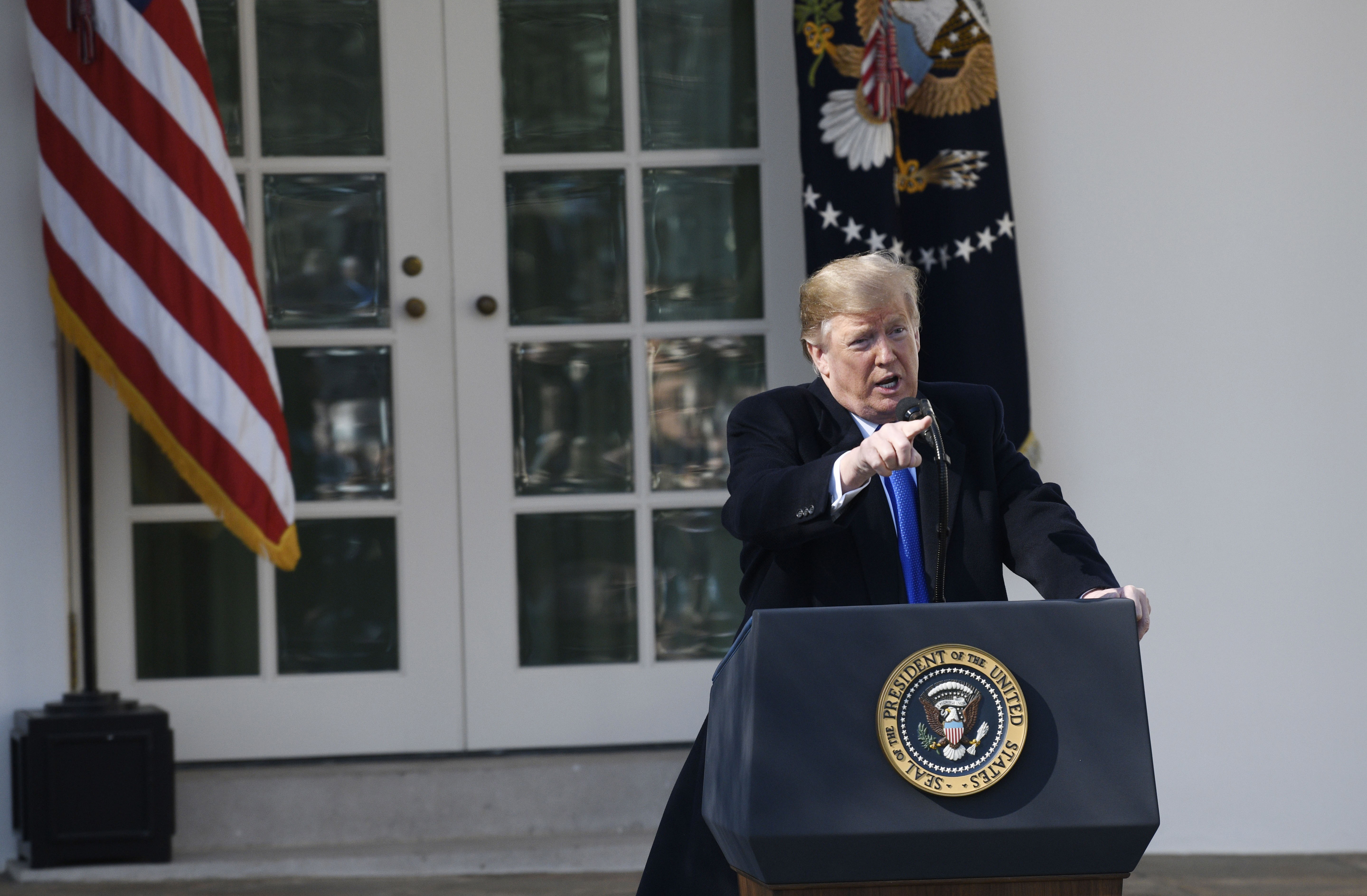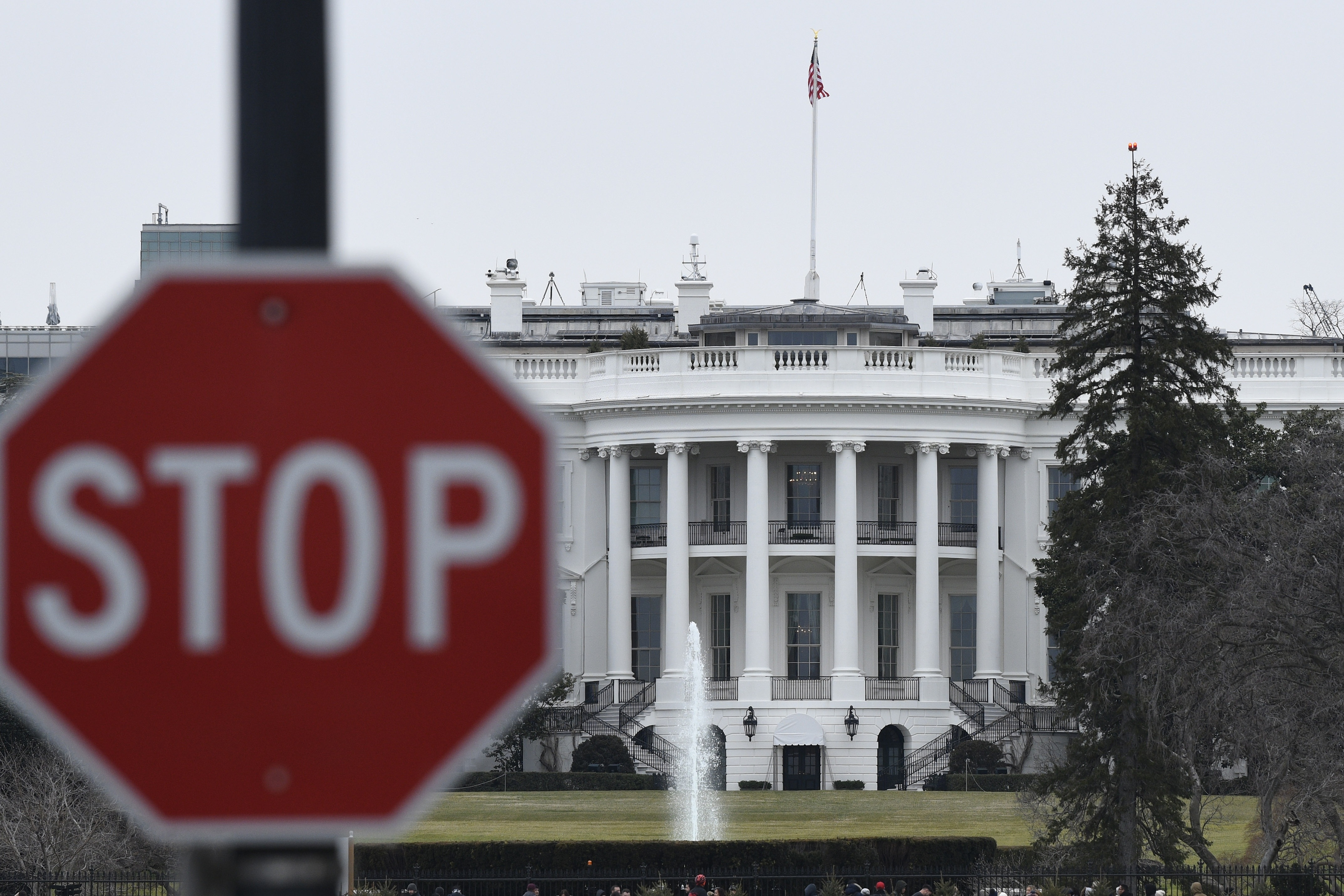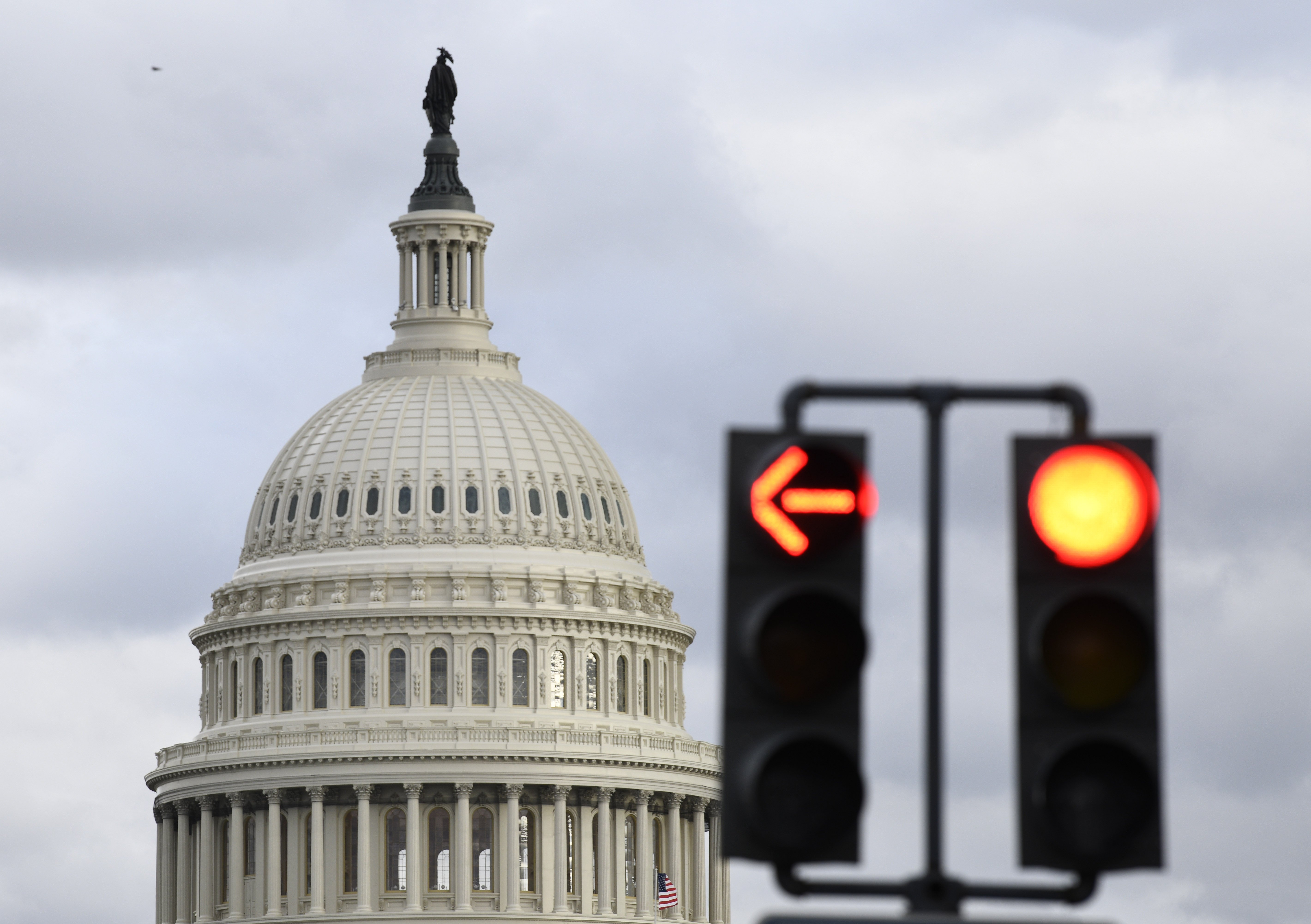US states revolt against Trump presidency
- By Niranjan Sahoo
 0 Comment(s)
0 Comment(s) Print
Print E-mail China.org.cn, February 22, 2019
E-mail China.org.cn, February 22, 2019

Ever since Donald Trump entered the Oval office in January 2017, there has hardly been a dull moment, and it's going to continue.
From discriminatory banning of citizens of several Muslim countries, labeling immigrants from African countries as coming from "shithole countries," pulling out of Paris Climate treaty and Iran nuclear deal, his 25 months tenure has witnessed some of the controversial executive decisions that the U.S. public may not have seen in many generations. The Trump presidency has also witnessed back-to-back government shutdowns, which is extremely rare.
However, the mother of all controversies is his recent decision to invoke a national emergency to raise additional money for his pet project, a Mexico border wall to keep out illegal immigrants, drugs etc. Trump is taking this action to bypass the Congress, which approved less than a quarter of the US$6 billion he was seeking to spend on the construction of the wall.
What he could not have imagined is that his act had led to a federal revolt by a large number of powerful states. In an unprecedented decision, a coalition of 16 states have decided to sue the President over his action.
Of the 16 states involved – California, Colorado, Connecticut, Delaware, Hawaii, Illinois, Maine, Maryland, Minnesota, Nevada, New Jersey, New Mexico, New York, Oregon, Virginia and Michigan – 15 are controlled by the Democrats, but Republican-controlled Maryland has joined the collation to challenge the President's "illegal act."
The lead author of this unprecedented lawsuit is California Attorney General Xavier Becerra. He is arguing that the President's order violates the Constitution, as Congress is the final arbiter of public funding.
His move has found many backers from the President's own party. Several influential Republican senators have warned that such a decision can open the gate for future presidents to misuse their powers for other purposes. Past presidents have used emergency provisions in the cases of war, blocking terrorism-linked entities accessing funds, managing national crisis and natural calamities, but Trump's action is something new.
Mexico wall obsession and its fallout
How did the world's most powerful nation get into such a surreal situation? American democracy has been inflicted with unprecedented level of political polarization where two principal parties – Democrats and Republicans – treat each other as "enemies" and not simply political adversaries.
Trump's shock victory in the 2016 presidential election has taken polarization and uncivil trends to a new level. While many of his recent decisions are populist and mostly arbitrary in nature, he has shown little practicality and flexibility on some key election promises, including his obsessive desire to build the Mexico border wall.
During his election campaign, Trump made an unprecedented promise to build a wall (2,000 miles long) with Mexico to stop the flood of illegal migration heading north, and famously pledged that "Mexico will pay for it."
True to his promise, he has been campaigning to raise funds to the tune of US$6 billion (although the total cost could be anything up to US$23 billion) to build the wall. This aroused strong opposition from the Democrats and even many influential Republican senators as well.

Since the Congress did not agree to fund his proposal, Trump triggered a government shutdown to force the legislators to release the required sum. In a trade-off, Congress finally agreed to release a quarter of the money.
This then prompted Trump to impose an emergency to raise the rest of the funding. However, many states fear that he could divert the committed federal expenditure needed for essential services such as drug rehabilitation, military construction and law enforcement activities.
While it is too early to predict how such a lawsuit will play out, and in whose favour the federal courts will decide, a nasty face-off between the federal government and a group of powerful states marks a new level of crisis in American democracy.

While Congress can still end this emergency by moving a motion in both the houses, given the democrats control the lower house and many Republican senators are angry over the President's actions, the damage is already done to American democracy and governance.
Niranjan Sahoo is a columnist with China.org.cn. For more information please visit:
http://www.china.org.cn/opinion/NiranjanSahoo.htm
Opinion articles reflect the views of their authors only, not necessarily those of China.org.cn.
If you would like to contribute and have specific expertise, please contact us at opinion@china.org.cn.






Go to Forum >>0 Comment(s)